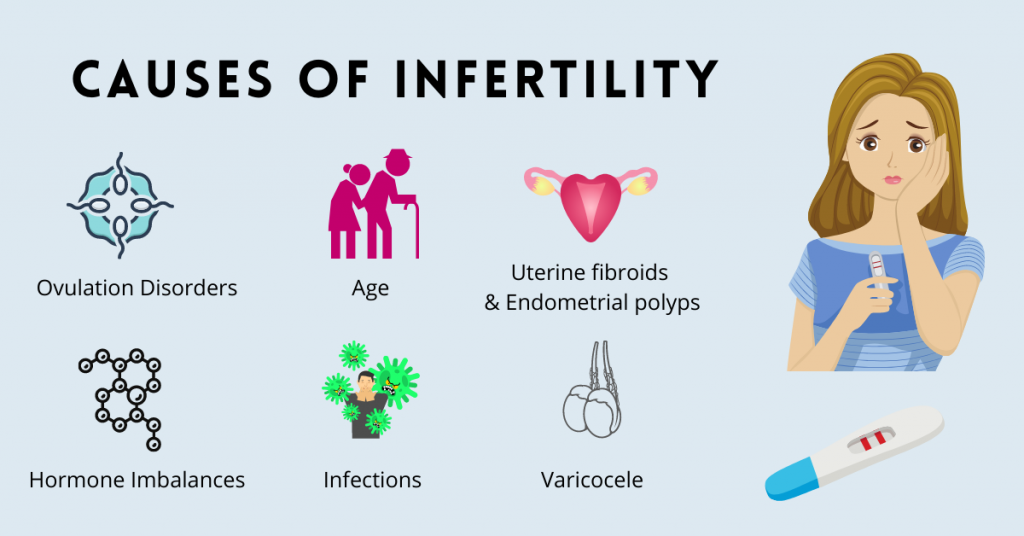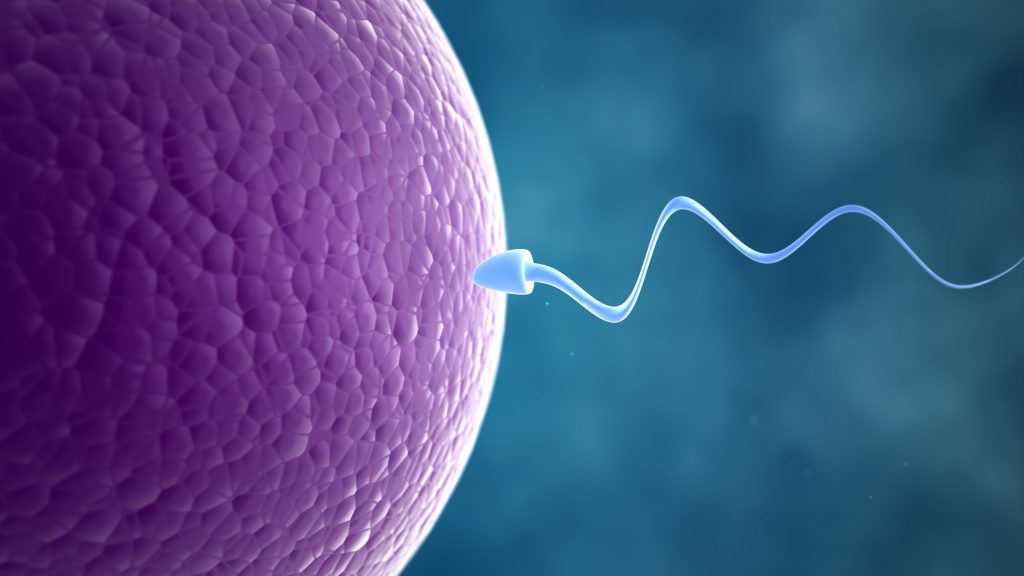It is inherently human to want to procreate. This is so evident even in little babies, as they learn to care for and tend to their dolls while still babies themselves.
As individuals grow into adulthood and seek life partners, many go into such unions with the intent of having kids and raising families of their own.
This however is not always the case for everyone, as many couples get to find out after years of unsuccessfully trying to have kids of their own but are unable to due to infertility.
Although society makes women suffer more when couples have difficulties conceiving, it has to be pointed out that both men and women can experience infertility.
Besides the many joys that come with parenthood (for those that so desire) our collective survival and continuation of our species, as humans, to a large extent, depends on fertility or the lack of it.
What Is Infertility?

Infertility is defined as a disease of the male or female reproductive system defined by the failure to achieve a pregnancy after 12 months or more of regular unprotected sexual intercourse.
Infertility affects millions of people of reproductive age worldwide – and has an impact on their families and communities.
Estimates suggest that between 48 million couples and 186 million individuals live with infertility around the world.
Infertility is a worldwide increasing medical problem. It is estimated that about 15% of couples around the world suffer from Infertility (Hellani, et al., 2006).
Infertility has significant negative social impacts on the lives of infertile couples, including emotional stress, social stigma, anxiety, depression, and low self-esteem, and can sometimes lead to divorce.
Infertility may be caused by environmental and lifestyle factors such as smoking, excessive alcohol intake, and obesity.
Also, exposure to environmental pollutants and toxins can be directly toxic to gametes (eggs and sperm), resulting in their decreased numbers and poor quality, which can lead to infertility.
Bacteria, fungal, and viral infections can also contribute to infertility. But for the purpose of this article, we will be focused on E. coli infections.
What You Should Know About E.coli
Escherichia coli is a well-known commensal of the normal intestinal microbiome that can also colonize the vaginal microbiome, usually without symptoms.
However, E. coli can also be a highly virulent and frequently deadly pathogen. (Cools, 2017).
There are numerous types and strains of E.coli with different characteristics, which can be contracted from contaminated food and water, direct contact with infected people and animals, or animal environments.
We can prevent E. coli infection by:
- Wash your hands with soap and water regularly; especially after changing diapers, touching animals or raw meat, and after using the restroom.
- Regularly disinfect counters, surfaces, and floors.
- Cooking all meat thoroughly before eating.
- Wash all vegetables and fruits very well before eating.
- Drinking only drinks milk, juice, and ciders that have been pasteurized.
- Avoid swallowing water when swimming.
E. coli and Male Infertility

Can e coli cause infertility in males?
E. coli have been shown to affect both female and male fertility Male and female factors are equally responsible for infertility.
Approximately 50% of cases of infertility are caused by male infertility (Vander and Wyns, 2008).
Different factors have been implicated as contributory factors in the prevalence of male infertility, which may be genetic or acquired. These include:
- Urogenital abnormalities
- Genetic diseases
- Endocrine disturbances
- Testicular failure
- Immunologic problems
- Cancer
- Systemic and urogenital tract infections
- Altered daily routine and
- Exposure gonadotoxic or ecological agents (Jungwirth, 2012).
Amongst these factors, acute and chronic urogenital tract infections (mostly caused by E.coli) play a prominent and unnoticed role (Jungwirth, 2012).
The etiology of about 55% of infertility due to male factors is not known, however, bacterial infection may be the underlying cause in such cases (Samplaski et al., 2014).
Uropathogenic Escherichia coli (UPEC) possibly the most repeatedly isolated microorganism from genitourinary infections (Stamm and Norrby, 2001) has been known to deteriorate sperm parameters i.e. obstruct sperm motility and amend morphology in vitro via agglutination (Cools, 2017).
It has been reported that microbial agents such as E.coli affect male fertility by:
- causing obstruction of the male reproductive system,
- sperm cell function impairment,
- testicular damage,
- epididymitis, and
- orchitis (Dieterle, 2008)
E. coli is the most frequently involved microbe in nonsexually transmitted epididymal-orchitis and is also prevalent in 65-80% of total cases of acute or chronic prostatitis.
Alongside Enterococci, E. coli are reported to be the microorganisms with the most detrimental influence on sperm motility and morphology making E. coli an important factor contributing to male infertility.
E. coli and Female Infertility
Apart from the more known causes of infertility in women, such as:
- tubal disorders leading to blocked fallopian tubes, which are in turn caused by untreated sexually transmitted infections (STIs) or complications of unsafe abortion, postpartum sepsis, or abdominal/pelvic surgery;
- uterine disorders which could be inflammatory in nature (such as endometriosis), congenital in nature (such as the septate uterus), or benign in nature (such as fibroids);
- disorders of the ovaries, such as polycystic ovarian syndrome and other follicular disorders;
- disorders of the endocrine system causing imbalances of reproductive hormones (WHO, 2020), female infertility can also be caused by urinary tract infection (UTI), with neuropathological E.coli (UPEC) the predominant uropathogenic.
UTI is very common in women due to their shorter urinary tract.
If a woman experiences frequent UTIs, then she may suffer from infertility due to associated pelvic inflammation which can cause scarring in the fallopian tubes or affect the ovulation process.
E. coli has also been implicated in post-conception reproductive abnormalities such as:
- stillbirth
- miscarriage,
- neonatal sepsis
- maternal sepsis
- chorioamnionitis
- preterm rupture of membranes
- preterm births and low birth weights amongst others( Cools, 2017).
How to Prevent E. coli Related Infertility
- Drinking a lot of water helps to flush out toxins and uropathological bacteria.
- Wear comfortable underwear that is not too tight, as wearing tight underwear can create a good environment for bacteria to thrive in.
- Urinate after sexual intercourse as this helps to flush out the bacteria to prevent infections.
- Maintain proper hygiene, especially when using as the female biology makes them susceptible to infections.
- You should wipe from front to back after urinating and bowel movements to prevent bacteria from entering the vagina or urethra.
- Do not hold urine for long periods as this makes bacteria thrive, leading to UTIs.
To prevent infertility, both men and women should do their utmost to prevent uropathogenic E. coli infection so it doesn’t impact their ability to conceive. In the event of any symptoms, always seek medical attention.
Conclusion
The question of whether Escherichia coli can cause infertility is complex and multifaceted.
While there is evidence to suggest that E. coli infections in the reproductive system can potentially impact fertility, the relationship is not fully understood, and further research is needed.
However, regardless of this connection, preventing E. coli infections through good hygiene and safe food handling remains crucial for overall well-being.
Whether you are concerned about fertility or simply seeking to protect your health, maintaining cleanliness and practicing safe habits are key to a healthier future.
